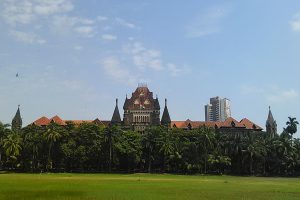Bombay High Court: Anuja Prabhudessai, J., examines whether on mere refusal to marry the offence of cheating be constituted under Section 417 of the Penal Code, 1860.
Additional Sessions Judge had decided that the appellant (referred to as ‘accused’) was guilty of offences punishable under Section 417 of the Penal Code, 1860.
Instant appeal was filed against the above-stated decision.
Prosecutrix had lodged an FIR alleging that the accused had sexual relationship with her with the promise of marriage and he subsequently declined to marry her. Crime against the accused was registered under Sections 376 and 417 of the IPC.
Analysis, Law and Decision
High Court noted that the prosecutrix was known to the accused and had a sexual relationship for over about 3 years.
Evidence on record revealed that the sexual relationship between the prosecutrix and the accused was consensual.
The accused had been held guilty of the offence under Section 417 IPC solely for the reason that he refused to marry the prosecutrix, hence the question that arose was whether in such circumstances refusal to marry would constitute the offence of cheating?
In the Supreme Court decision of Maheshwar Tigga v. State of Jharkhand, (2020) 10 SCC 108, it was examined whether the prosecutrix had consented to the physical relationship under any misconception of fact with regard to promise of marriage or whether her consent was based on fraudulent misrepresentation of marriage. The Supreme Court has held that under Section 90 of IPC a consent given under a misconception of fact is no consent in the eye of the law. But the misconception of fact has to be in proximity of time to the occurrence and cannot be spread over a period of four years.
High Court stated that the evidence of the prosecutrix did not indicate that she had sexual relationship with the accused under the misconception of fact, with regard to the promise of marriage or that her consent was based on fraudulent misrepresentation of marriage.
Elaborating further, the Bench also noted that there was no evidence to prove that the prosecutrix had consented for physical relationship on a misconception of fact, as stipulated under Section 90 IPC, there mere refusal to marry would not constitute offence under Section 417 IPC.
Therefore, the impugned judgment could not be sustained in view of the above discussion and the appeal was allowed. [Kashinath Narayan Gharat v. State of Maharashtra, 2021 SCC OnLine Bom 5910, decided on 9-12-2021]
Advocates before the Court:
Ms Vrishali Raje for the Appellant.
Mr. S.V. Gavand, APP for Respondent -State

